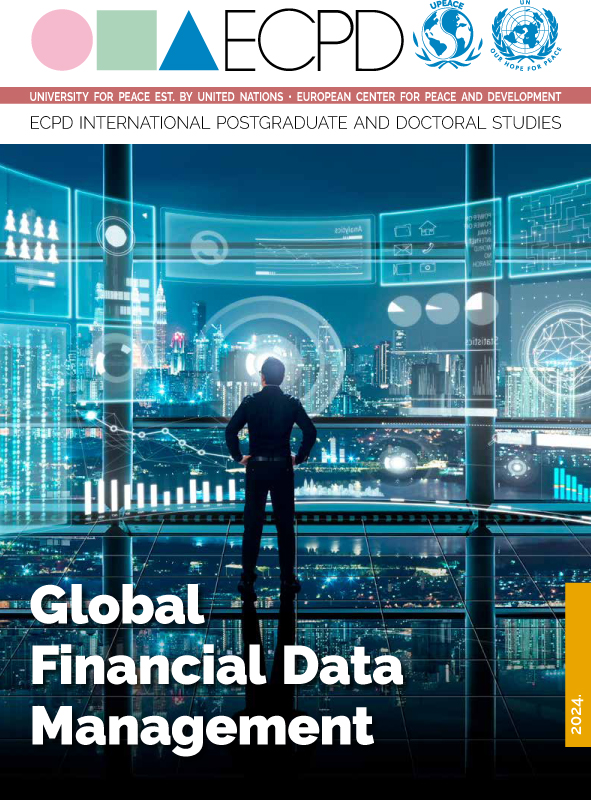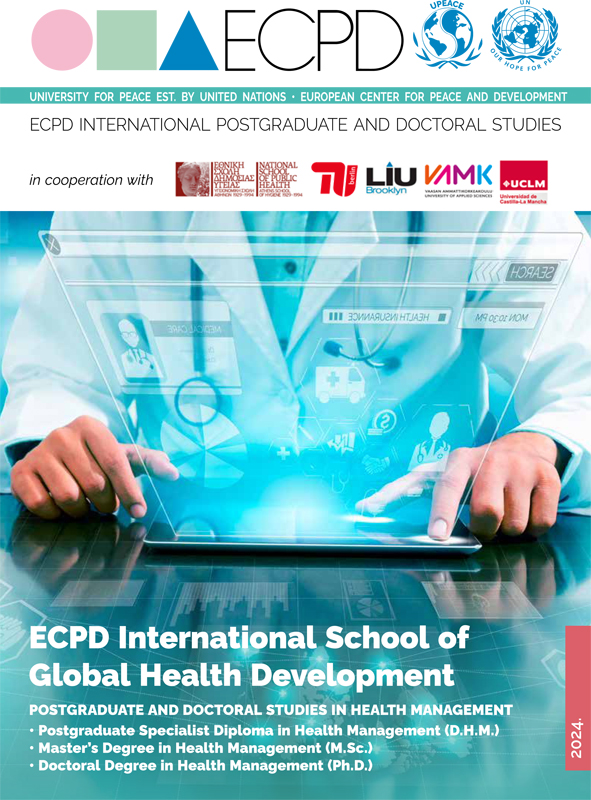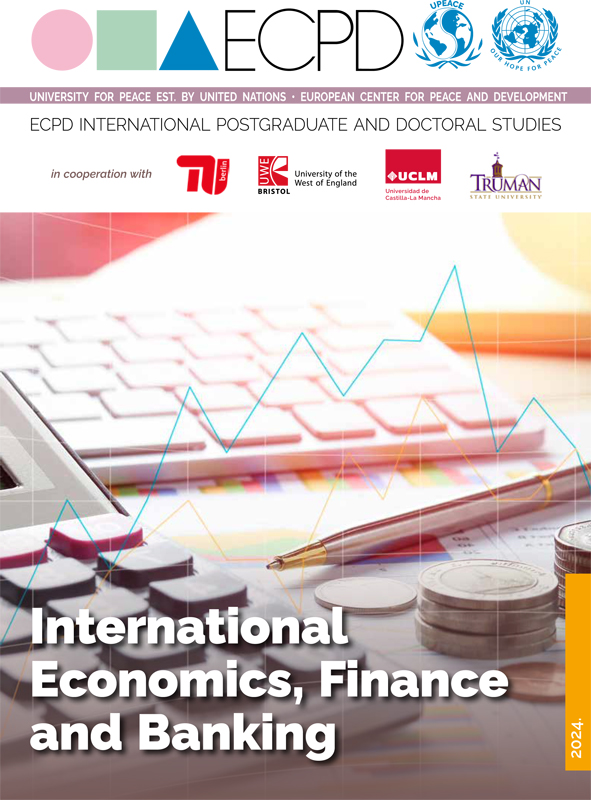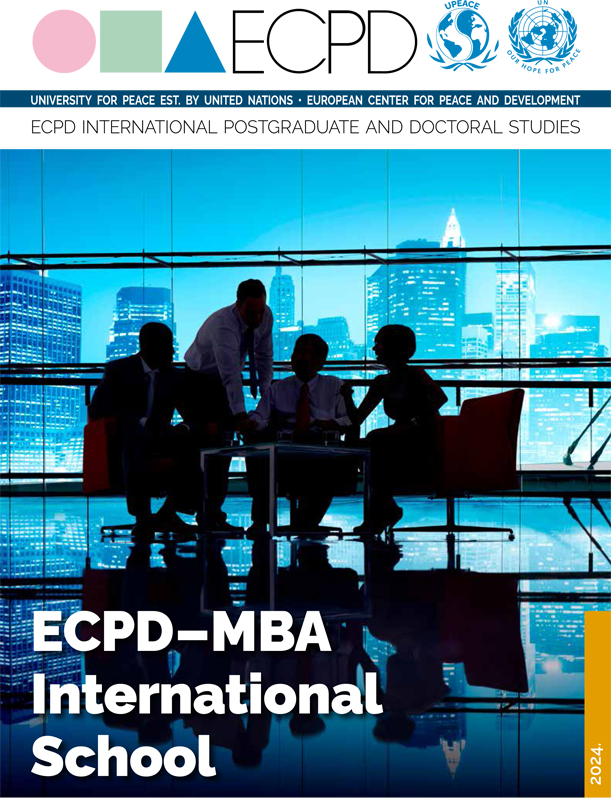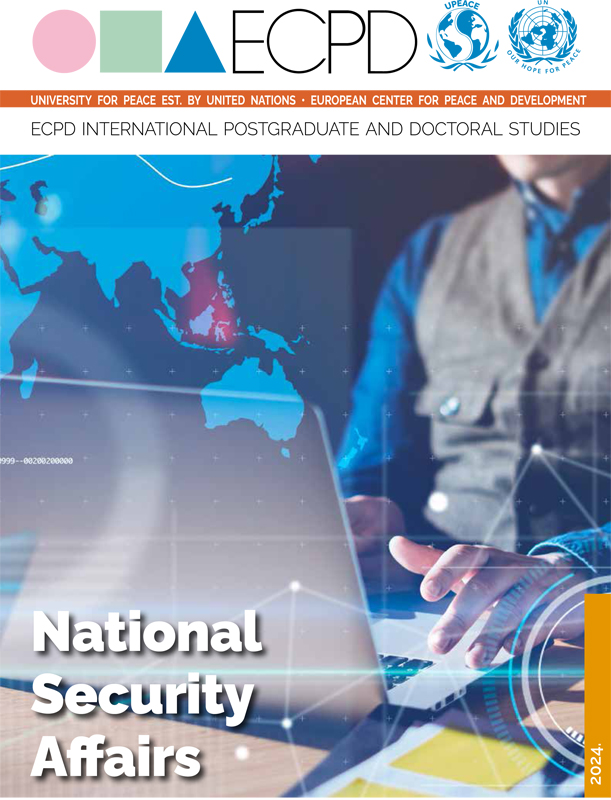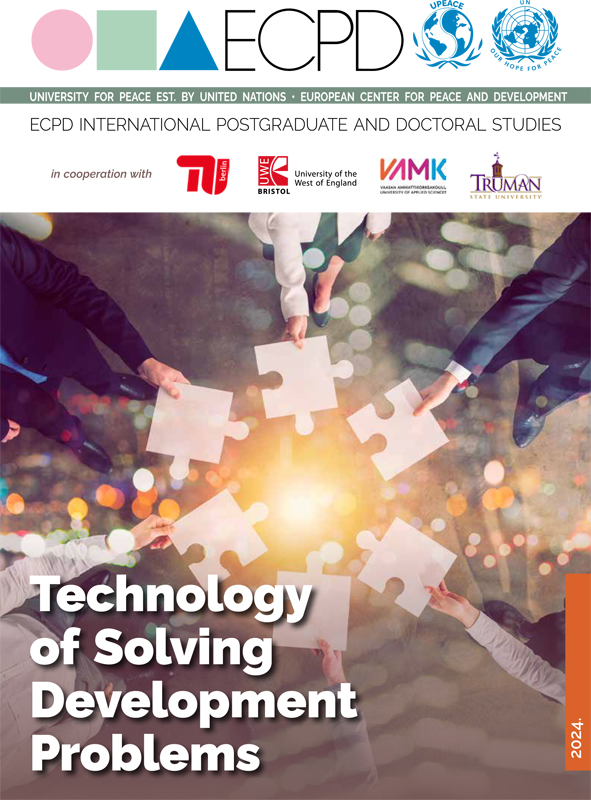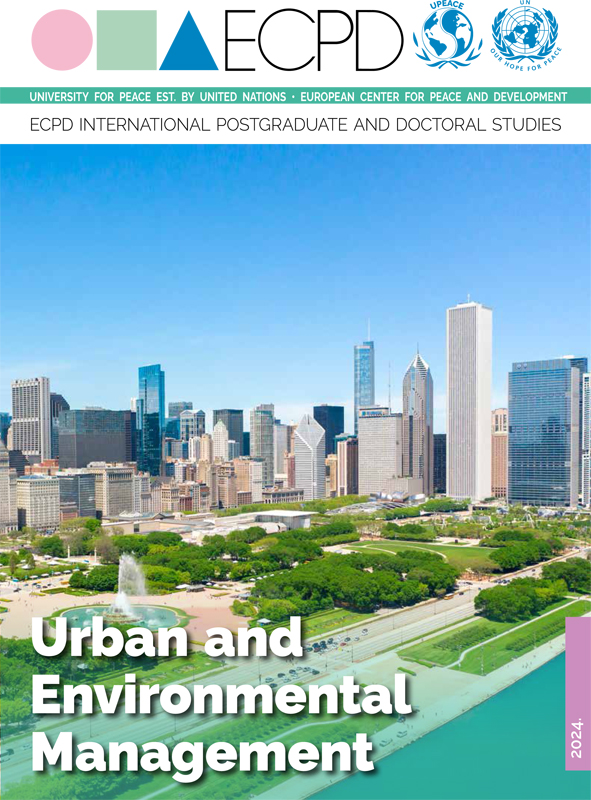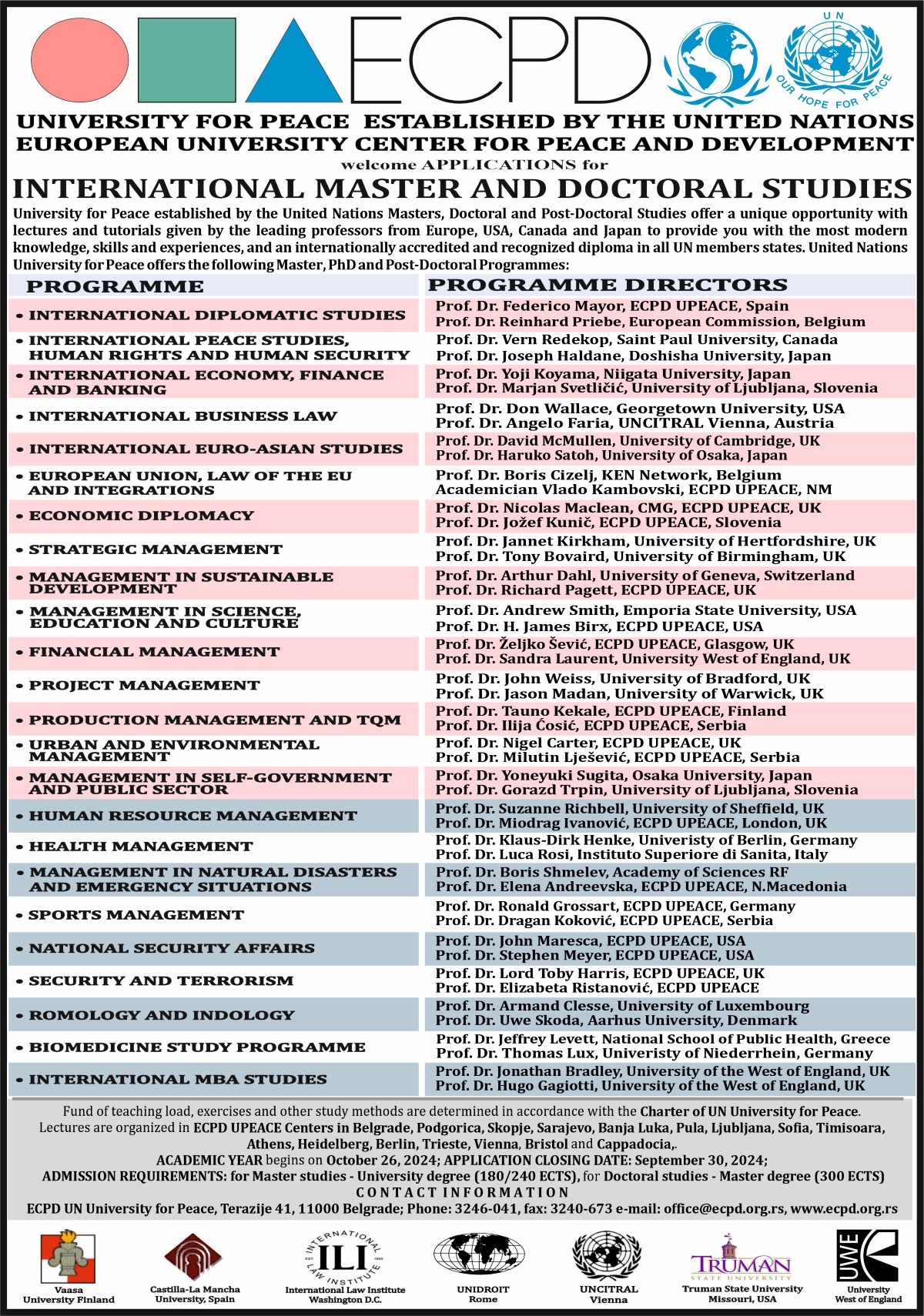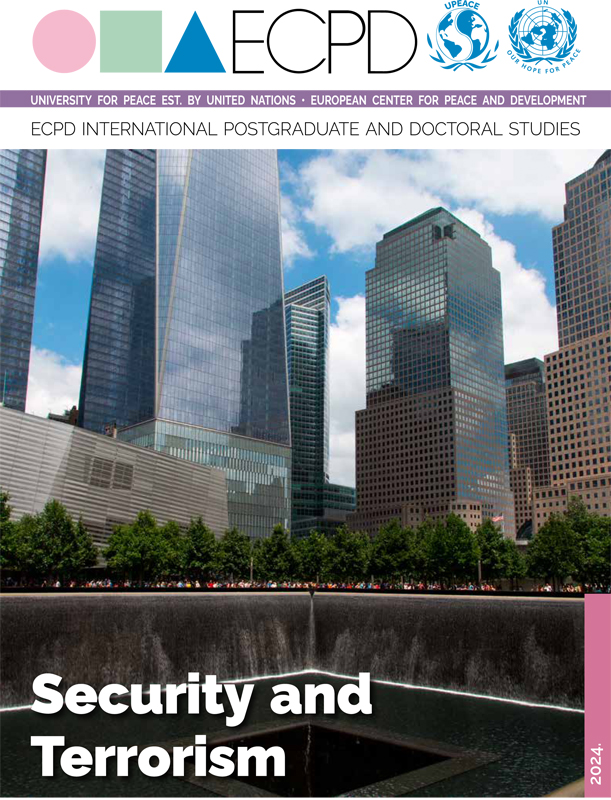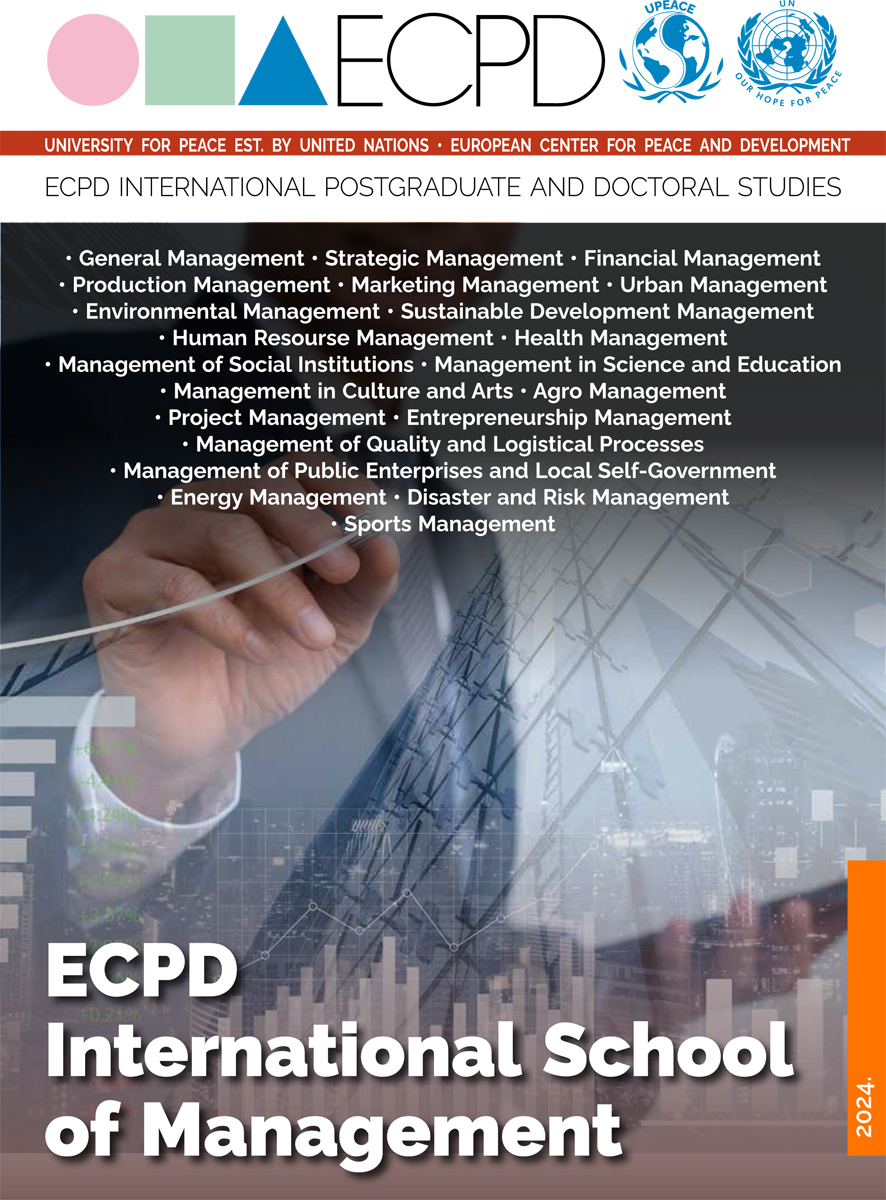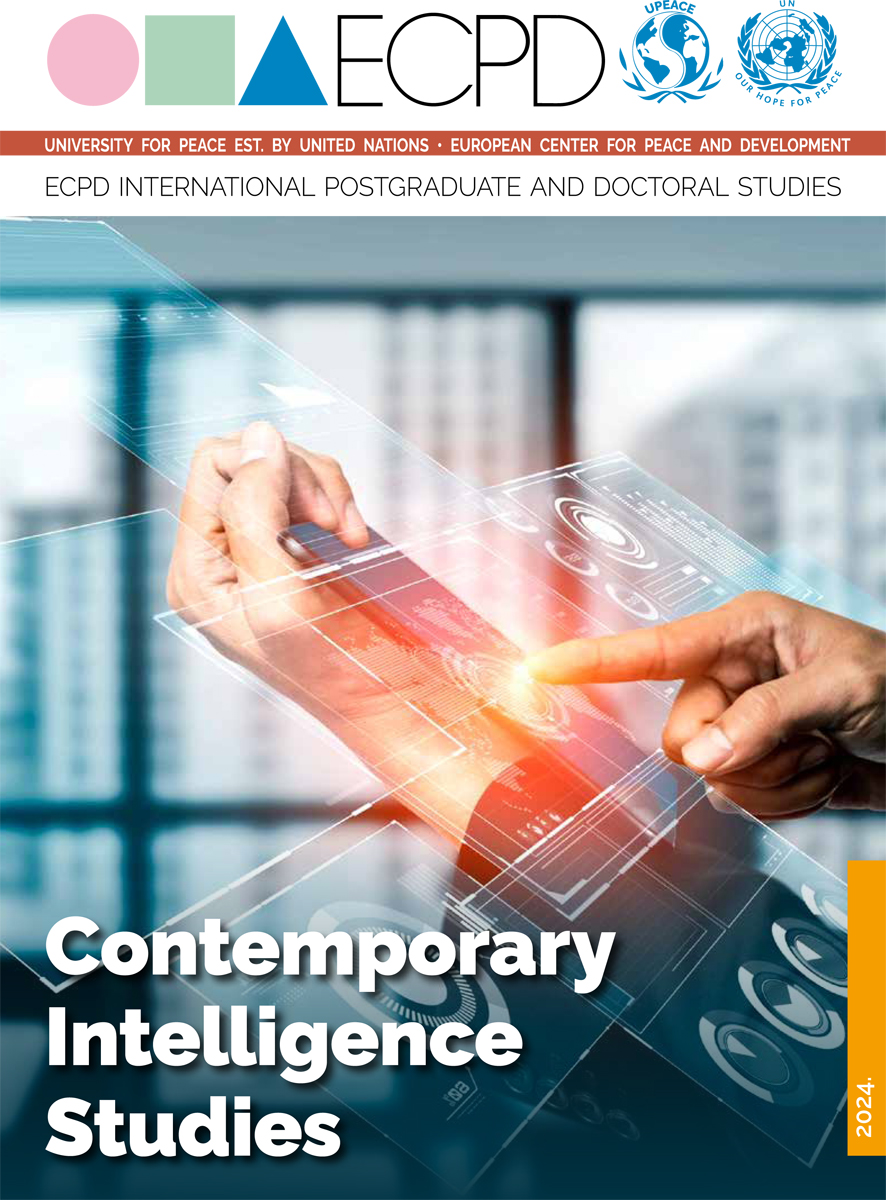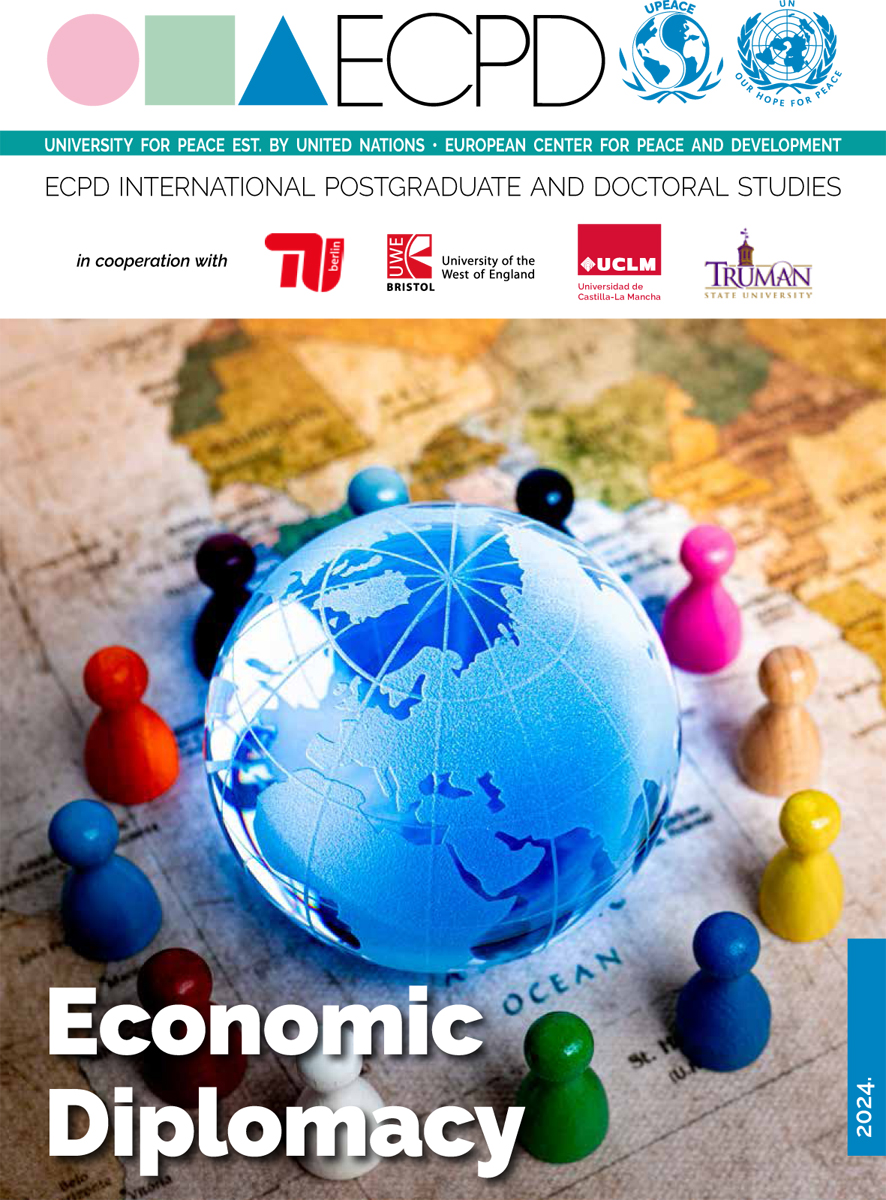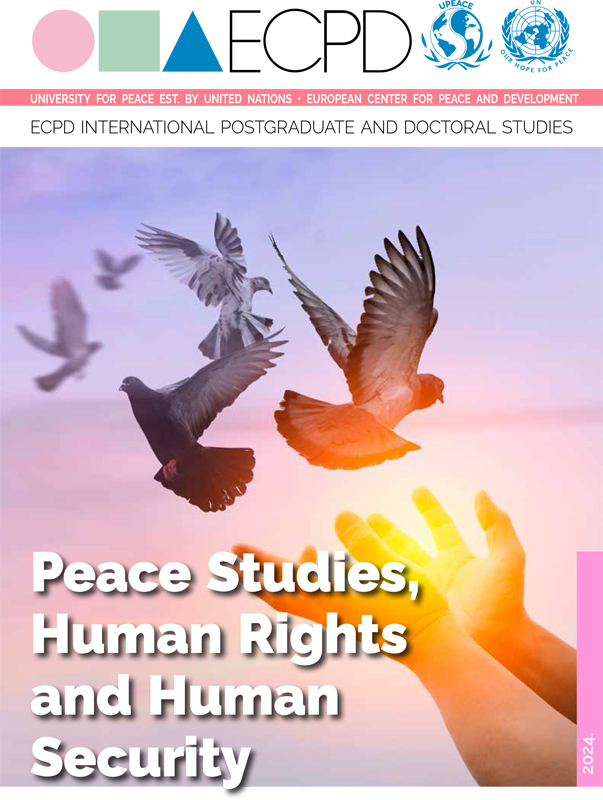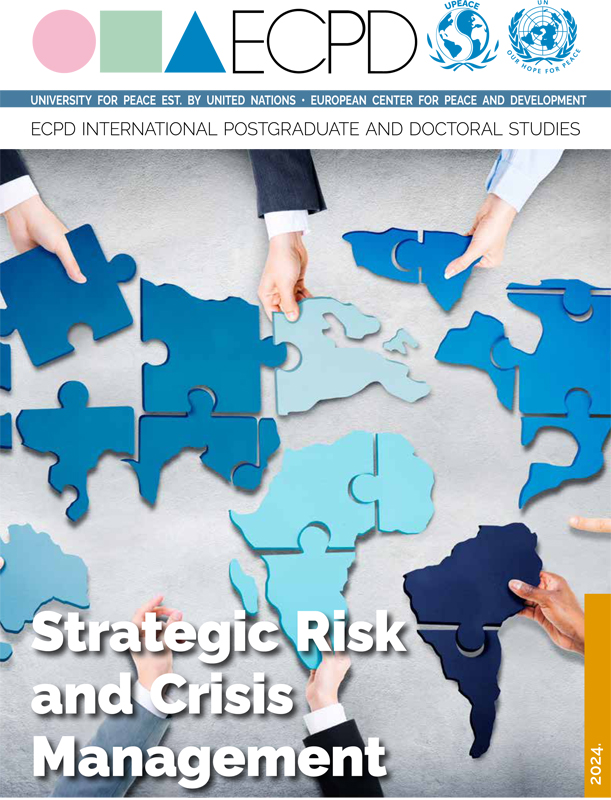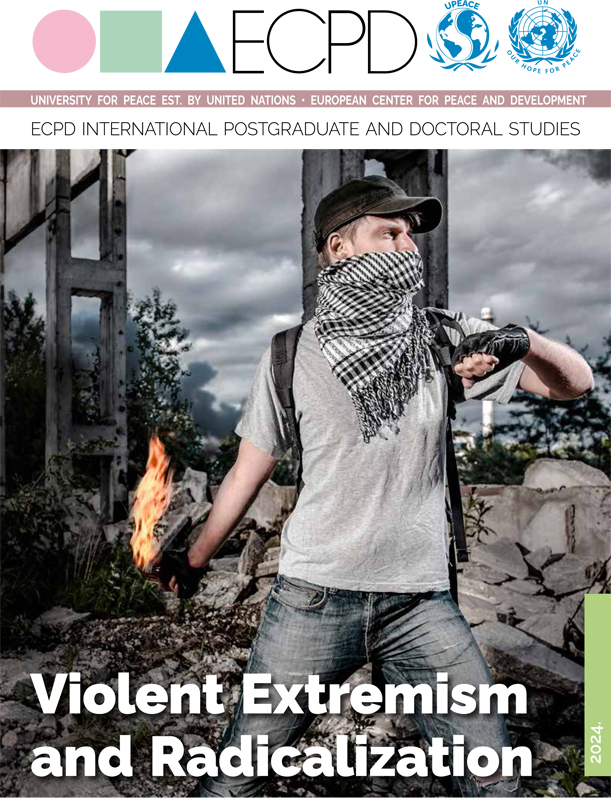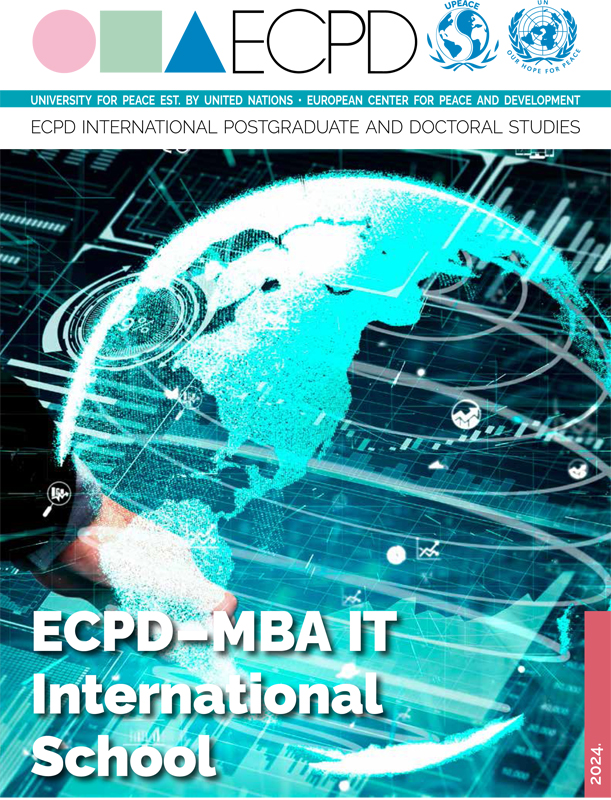![]()
Peace and Democratic Multilateralism
27 Jul 2017 at Headquarters of the ECPD in Belgrade, Serbia

The coming conference will bring together numerous participants ‒ prominent scientists, politicians, diplomats and high-ranking officials of international, regional and national institutions from Europe, USA, Canada, Japan, China, Australia, India and other countries. It will be opened by introductory speeches by H.E. Federico Mayor, President of the ECPD Council and long-standing Director-General of UNESCO, H.E. Prof. Dr Erhard Busek, Former Austrian Deputy Chancellor, Prof. Dr. Shinichi Ichimura and Prof. Dr. Johan Galtung, Founder and long-term President of the International Institute for Peace Research.
This year's conference, titled “Peace and Democratic Multilateralism”, will include the following panels:
(i) Global institutions to face global threats. The UN Charter, the UNESCO’s Constitution;
(ii) Peace and Development. Integral, endogenous, sustainable and human development for a dignified life for all. Disarmament for Development (an IPB initiative);
(iii) The UN priorities in the new era: food, water, health, environment and education;
(iv) An Agenda for Peace: the Declaration and Program of Action for a Culture of Peace and the recent GA Resolution A/71/L/47 “ Follow-up to the Declaration and Program of Action on a Culture of Peace”;
(v) Concrete proposals for peace and non-violence at the worldwide level.
The Conference is expected to adopt appropriate conclusions and recommendations which will be widely distributed to the heads of states and governments, ministers of foreign affairs in the Region as well as high-ranking officials in the United Nations and European Union.
Japan and Asia
Economic Development and Nation-Building
Shinichi Ichimura
Professor Emeritus, Kyoto University, Japan
Honorary Professor, European Center for Peace and Development (ECPD)
University for Peace est. by United Nations, Belgrade, Serbia
This book is the second collection of my professional articles on the economic development and nation-building of Japan and Asian countries that I wrote from the early 1980s to 2016 and did not republish in any other monographs. The first one was Political Economy of Japanese and Asian Development, Springer-Verlag, Berlin-Tokyo, 1998. It covered my main articles and essays from the 60s to the early 80s, dealing with Japan’s postwar reconstruction and Asian flying-geese pattern of development. These two books are translated into Serbo-Croat language and published by the Europe-an Center for Peace and Development. I am particularly pleased with this effort of ECPD, because as the director of Institute of Southeast Asian Studies, Kyoto University, I recognized a long time ago geopolitical similarities between Southeast Asia and Southeast Europe, the Balkan countries and have been long associated with ECPD.
Japan and Asia consists of the following five parts:
Introduction my research on Asian development
I. The Present and the Future of Japan and Asia,
II. Development and Nation-Building in Stages,
III. Empirical Studies of Behaviors of Economic Entities and Market,
IV Socio-Cultural Problems and Nation-Building.
Introduction explains how I have pursued my research during a long academic career. I have done many kinds of research: theory, empirical studies (Input-Output analysis and Macroeconometric modeling) of the Japanese economy, and development economics with its empirical works. Appendix to this book gives a list of 75 monographs and 281 main published papers of mine. Among those pa-pers, I selected only 18 articles under four headings which seemed appropriate to assert some strong propositions in Asian development research. Its first central thesis is that economic development can be achieved only with sound nation-building. In other words, sustaining modern economic growth requires building up a solid modern state, and vice versa. Its second thesis is what my teacher, Prof. Yasuma Takata taught us: “economy is subjugated to polity.” In other words, economists must always keep in mind the political implications of economic phenomena and policies. Since, however, I am planning to edit the third volume on Japan and China; so that to my regret, I had to exclude some ar-ticles relevant to the interaction between polity and economy here.
Promotion of the book Japan and Asia ECPD Headquarters Belgrade Part I offers four papers of my invited addresses at the Seoul International Convention of the East Asian Economic Association in 2010, the Korean Academy of Sciences in 2011 and the International Demography Convention in Pusan, 2013. In essence, they all deal with the present and the future of Japanese and Asian economies in the 21st Century to analyze the lost two decades of declining growth and offer my modestly pessimistic prospect for the future. The strongest underlying reason for this pessimism is the declining population, which is so clearly demonstrated by sharply falling fertility rate in all the countries involved. My last paper in Part I comments on this extremely important problem.
Part II presents four articles on a central proposition of this book; namely, the relations of economic development and nation-building “in stages.” I defined four stages of development as follows:
(1) The least developed economy (< $300- ),
(2) The under-developed economy (< $2,000-),
(3) The developing (middle income) economy (< $10,000-), and
(4) The developed economy (> $10,000-).
I argue that economy and polity in each stage change adequately. For example, governmental fiscal administration must be centralized in underdevelopment stage, but in later stage it must be decentralized step by step. Somewhat more detailed discussions are offered in the book.
Part III offer seven articles of the most substantive survey research findings that I did with my col-leagues in East Asia and China. They are:
1. The socio-economic behaviors of Thai and Indonesian peasants,
2. Adaptation and application of new appropriate technologies in manufacturers in Thailand, Indonesia and the Philippines, and
3. Japanese style management applied in Singapore, Indonesia, and three districts in China and an international comparison of eight countries in East and Southeast Asia.
In my opinions, the political economy of development must pursue such microscopic quantitative survey methods for empirical studies rather than individual scholars’ field observations. I have shown my own experimental research’s for the purpose. This part occupies about half of the book.
Part IV presents my views in two papers, first, on Asian nationalism and second, on the so-called Crash of Civilizations. The first sums up my deductive conclusions from reading the lives and their writings of Sun Yet-Sen in China and Sukarno in Indonesia that most Asian nationalisms have essential common factors and could live together. Second, my critical review of Samuel Huntington’s The Crash of Civilization concludes that the author points out some factors causing crashes but not the essential parts. There are many multi-ethnic countries and regions and yet much more seldom they crash each other as Christians against Muslims. Why? Parts of my modest opinions are expressed in the book.
This book publishes the substantive parts of my research works during my days at Kyoto University (68-88) through Osaka International University (88-95), Asian Growth Institute (former ICSEAD) (95-2005), except for econometric modeling works. I hope that the interested reader will refer to my and L. R. Klein’s Macroeconometric Modeling of Japan, WS, Singapore, 2010. I hope to be able to complete Japan and China before too long.
 Negoslav Ostojic
Negoslav Ostojic
Executive Director of the European Center for Peace and Development (ECPD) of the University for Peace established by the United Nations, with headquarters in Belgrade; Director of the Mediterranean Institute for International Postgraduate Studies and Development Research with headquarters in Podgorica;. Professor of International Economics and International Development; Member of the European Academy of Sciences and Arts, Salzburg;Author of the numerous books, publications, articles and other scientific papers published internationally in several languages.






Captions
1. Peace and Democratic Multilateralism conference at the ECPD Council
2. Peace and Democratic Multilateralism conference at the ECPD Council
3. Peace and Democratic Multilateralism conference at the ECPD Council
4. Peace and Democratic Multilateralism conference at the ECPD Council
5. Prof. Negoslav Ostojic
6. Peace and Democratic Multilateralism conference at the ECPD Council
https://wsimag.com/economy-and-politics/28244-peace-and-democratic-multilateralism















